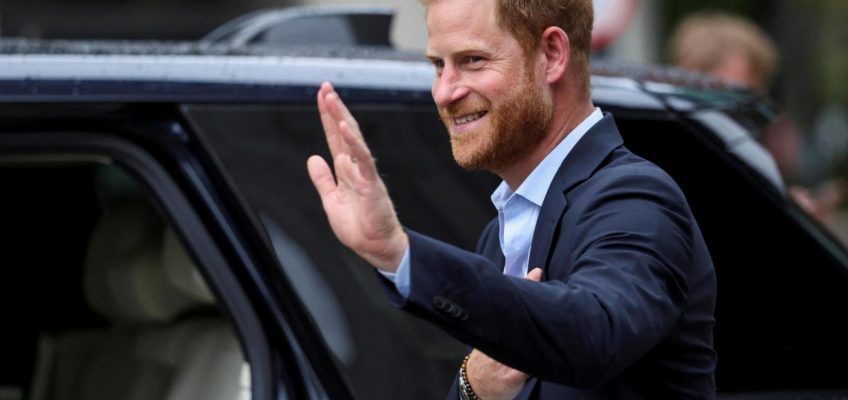By DANICA KIRKA and BRIAN MELLEY
LONDON (AP) — Britain’s Prince Harry joined his father, King Charles III, for tea on Wednesday at the monarch’s London home, the first time they’ve met in well over a year.
Related Articles
Despair and destruction: Civilians in Ukraine’s eastern strongholds struggle as Russia advances
UN nuclear chief says agreement provides for access to all of Iran’s nuclear facilities
Hong Kong lawmakers reject a bill recognizing same-sex partnerships
Russia’s violation of Poland’s airspace is the most serious in a string of cross-border incidents
Qatar digs through the rubble of Israel’s attack on Hamas leaders in Doha
The two have been distant since Harry and his wife, Meghan, left royal life and moved to California in 2020 and then publicly aired grievances about the royal family.
Buckingham Palace confirmed that Charles and Harry spent time together at Clarence House, where the king lives when he’s in the capital.
Late Wednesday afternoon, Harry was driven through the gates of the four-story mansion not far from Buckingham Palace. He was seen leaving less than an hour later, as he ducked down in the car enroute to an evening event for his Invictus Games, which supports injured and sick service members and veterans.
There had been speculation that Harry might meet his father after he arrived in the U.K. on Monday, the third anniversary of the death of his grandmother, Queen Elizabeth II, for a four-day trip during which he will visit several of the charities he supports.
A meeting in July between representatives of the king, 76, and his wayward son, 40, led to suggestions that the frigid relationship between Harry and his family might be thawing.
The split had deepened over the past five years as Harry and Meghan aired their grievances with the royal family in a tell-all interview to Oprah Winfrey and a revealing Netflix series. Harry, also known as the Duke of Sussex, then fueled the tensions by revealing personal conversations in his memoir, “Spare.”
Harry and his father last met in February 2024, when the prince flew to London after receiving news that Charles had been diagnosed with cancer. Harry spent about 45 minutes with Charles before the king flew to his Sandringham country estate to recuperate from his treatment.
Harry has also had little contact with his elder brother, Prince William, heir to the throne.
Harry was last in London in April, when the Court of Appeal rejected his bid to restore a police protection detail that was canceled after he stopped being a working royal. Charles was on a state visit to Italy at the time, so a meeting then was impossible.
That case was itself an impediment to improved relations because it involved Harry criticizing the king’s government in the courts. But once it was over, change became possible.
Immediately after the case ended, Harry said he would “love reconciliation with my family.”
“There’s no point in continuing to fight anymore,” he told the BBC on the day the court case was resolved. “Life is precious. I don’t know how much longer my father has.”
Despite that olive branch, Harry had also struck a combative tone. The prince repeatedly said the decision to withdraw his security was made at the direction of the royal household in an effort to control him and his wife while putting their safety at risk.
“What I’m struggling to forgive, and what I will probably always struggle to forgive, is the decision that was made in 2020 that affects my every single day and that is knowingly putting me and my family in harm’s way,” Harry said.
But with the lawsuit out of the way, there were signs of change.
In July, the new team handling Harry and Meghan’s communications, headed by Los Angeles-based Meredith Maines, was seen on the balcony of a private members’ club in London speaking with Tobyn Andreae, the king’s press representative. The Mail on Sunday tabloid took a photo of what it called: “The secret Harry peace summit.”
Regardless of who tipped off the newspaper, it showed a change of tone since the meeting wouldn’t have happened if the principals hadn’t given their tacit consent.
Following the long-awaited meeting Wednesday, Harry dashed to his next charity appearance at an Invictus Games event across town.
When a reporter asked about his father’s health, the prince offered his firsthand opinion: “Yes he’s great, thank you.”




